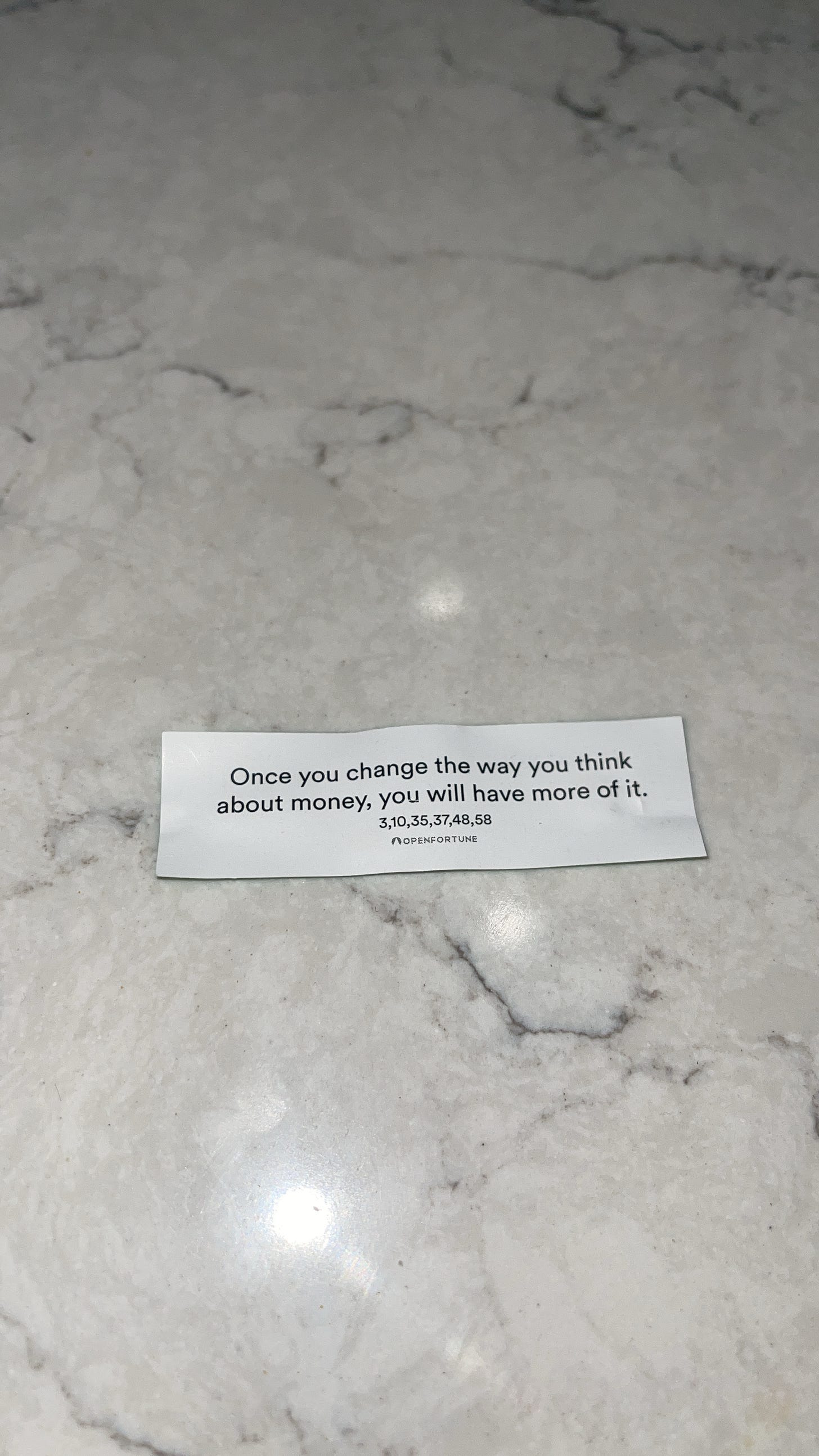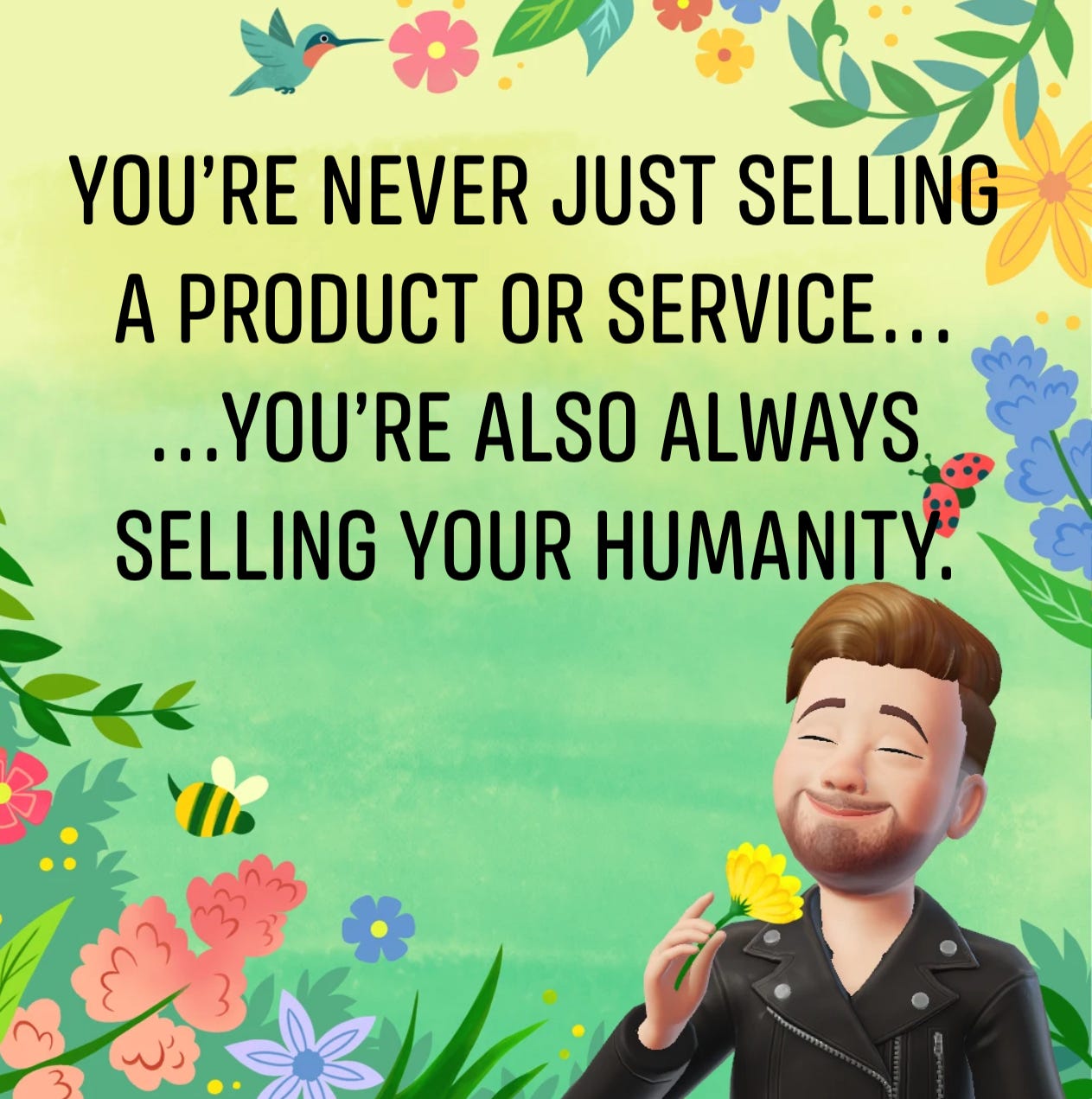(INTRODUCTION - PART 2)
We’ve all heard “money notes” to describe the high or long notes or other big moments in our songs or shows. Sometimes it’s also used in reference to reaching a certain quality or level with speaking or voiceover work. That might even be a metric of sorts that can make us finally feel worthy of remuneration like a real professional. And occasionally the phrase “money voice” might get mixed in with such contexts.
Your “money voice” may also come up in some corners of the personal finance world. I once heard a financial coach, a title for someone who specifically helps people manage their budgeting and saving, define it as your inner dialogue when making your spending decisions. I recall this person saying, “It’s like the voice you give your bank account.” Personally, I’m not a fan of the idea of a banker living rent-free in my head! I’m not in the business of telling you how to spend your money; I’m here to help you figure out what’s holding you back from actually earning more—and so much more you won’t ever have to let anyone or anything, real or imagined, deny you what you really want. 😉
The phrase “money voice” also gets used sometimes in the business coaching spaces. I once heard a sales coach use the phrase to describe having a confident authentic voice when closing a sale and asking for the payment. I first heard the phrase though in a coaching training session by Kendall Summerhawk, who uses it to describe having an empowered voice for talking about money and having healthy money boundaries in your business and personal life.
These latter two ideas are more in the direction I’ll be building on here. I think there can be a deeper and more wholistic accounting for the entire life cycle of transacting for money. By life cycle, I mean from the conception of an original thought or idea through its transmutation into the reception of the actual money or its equivalence, and even beyond. So this includes all of the physical AND non-physical aspects of how our voices can be used to bring more money into our lives. And since there is no universally accepted definition of the phrase “money voice,” this is an opportunity to establish one while still honoring what’s already in some lexicons. 😎
A Mind-Body Continuum…
Everyone has a body and a mind. Part of the body is your physical or outer voice, and part of the mind is your non-physical or inner voice. When it comes to bringing money into our lives, there is the outer physical voice that we use to present ourselves, have sales conversations, and/or otherwise be heard so we can actually ask for money. The outer voice, in this context, also includes all the other forms of external communication for getting your voice out there, such as writing, sign language, etc. Before our outer voices can be put to use, our inner voices must originate the thoughts behind what is going to be said.
The inner voice is basically synonymous with, or is considered to be a part of the mind. The mind, for which there is a conscious and a subconscious side, operates based on a culmination of all our ideas, beliefs, and habits of thought. Included in these beliefs are those pertaining to money, wealth, success, business, and more. This all plays a vital role in our ability to even think about money, let alone actually ask for it, or let alone even get ourselves and what we have to offer into a position to ask for it.
While many people likely will read this expecting a tutorial on improving their outer voices, i.e. their sales and presentation skills, the inner voice and the mindset is almost always where the most of the work needs to be done. It doesn’t matter how confidently you can orate if you’re not backing up those words with a steadfast belief from within. Someone who is shy and soft-spoken, but is otherwise very authentic and relatable, can often garner more trust and sales success than someone who can put on a good, loud spectacle—unless fake entertainment is all the buyers really want! This is why some of the best salespersons are actually introverts even though the sales profession is associated with extroverts.
Success = 5% Strategy + 95% Mindset
The math may not be scientifically verifiable or perfectly accurate, but it helps to at least try to maintain a mindset as if it’s accurate. A rock-solid, elite entrepreneurial mindset combined with an authentic and trustworthy ability to actually ask for money will always outlast the various marketing strategies, selling tactics, and business models that will come and go throughout our lifetimes. Moreover, most strategies won’t be very effective if you don’t have the right attitude, you’re not willing to be flexible, or if you’re living in fear of failing.
In order to have a rock-solid ability to ask for the money we want, we can’t just rely on having the right script. If we sound even slightly scripted or otherwise inauthentic or not confident these days, we can lose the sale or the negotiation; most people are smarter than ever and more on guard more than ever with their money. We need to develop the right rock-solid beliefs behind why we’re asking for the money and why we’re worthy of receiving it for what we’re offering. Let me demonstrate this by recalling a couple of different experiences in asking for more pay as a professional singer.
A Tale of Two Churches
About a year after I graduated with my Doctor of Musical Arts degree, I was seeking a higher pay rate for a potential cantor position to make accepting and committing to it worth my while—and worth my resume. I set up a meeting with the pastor and had the perfect pitch ready to ask for more money and to explain why. In the lobby outside the office as I waited, I noticed a locked wooden “poor box” with a narrow slot for additional tithing to help the poor. It triggered some “vow of poverty” thoughts and worries in my mind. My father often used that phrase when justifying the pay cut he took going from corporate to being a professor at a Catholic university.
Instead of going into the meeting ready to advocate for what I needed, not to mention the actual economic value I’d be generating, I was already thinking, “Maybe I should just be grateful for anything.” Never mind that I needed to piece together enough verifiable income to even get a place to live. My effort to stay overly humble and forgetting much of my scripted pitch may have sent a double-binding message to where I was communicating subconsciously that I didn’t really need or warrant what I was asking for. The elder pastor rambled onward and dominated the conversation—or was it really a sermon?! The meeting ended with what sounded like him saying it would be easier for a camel to go through the eye of a needle than to increase the budget to pay the singers more.
Later on, I had a different experience where I was offered a permanent position for a very different church. Committing to their one service every Sunday morning would have meant losing out on two services worth of income at another church. Though I still had self-worth issues at the time, it felt fair and reasonable to at least ask if they could try and make up even some of the difference. So this gave me a more confident mindset heading into the conversation. And to my surprise, it wasn’t so much a negotiation as it was a very quick and casual chat; they gladly offered to more than match the total income I’d otherwise get for two services at the other church. They genuinely wanted me and appreciated how my singing enhanced their worship experience. More income, more sleep, more good music, and more love and appreciation for my gifts made for quite a win-win-win-win scenario!
It’s all about subconscious confidence!
The above are just a couple simple examples of how my confidence—or lack thereof—and my subconscious beliefs influenced the result when I was asking for more money. There is a reason they say in sales trainings that the more confident person always sells the other person. Either you’re more confident about why you can or should do or receive something, or they’re more confident about why you can’t or shouldn’t. One of the most important things I’ve found myself doing in the service of my clients is instilling in them confidence in what to charge and in actually asking for the sale from those they are most meant to serve because it’s worth it, even at a higher price.
Much of the confidence we garner stems from the beliefs and thinking habits programmed in our subconscious mind. “Paradigm” is an all-encompassing word used to describe this. One possible explanation for the “Success = 5% Strategy + 95% Mindset” equation is that roughly 95% of our thoughts and actions are done subconsciously, and only 5% are conscious or actively thought about at any given time. So most of the results we get in life are a product of the paradigm behind the 95% that happens subconsciously.
This is why priming your mindset for greater wealth and abundance and making a lasting mindset shift isn’t a quick-fix panacea. You can’t just buy a mini class online for $7 and expect to suddenly make seven figures. It takes dedicated study and commitment, just like with learning any other skill or craft, in order to make a lasting money mindset or paradigm change as you grow into someone capable of having the kind of entrepreneurial success you desire to have.
Changing the paradigm…
Growing your money voice is really about changing this paradigm or reprogramming your subconscious mind around money, business, and success. And the purpose of this book is to help you achieve that through the perspective of developing your empowered voice so you confidently can start to ask for and attain more wealth with what you’re most meant to offer as an entrepreneur.
Change, however, doesn’t come easy. There is almost always some comfort in staying where we are, since the subconscious mind is programmed to safely keep us there. One of my biggest goals in this book is to give you an opportunity to contemplate and start to become aware of what the real paradigm shift you need might be for you and why. If this book can help you get clarity about even one thing keeping you stuck so you can at least start moving in the direction you truly want to go in, I will have done a big part of my job here and your life will start to change for the better.
And on one final note, even though I’m primarily writing with an audience of musicians, private studio teachers, and other types of artistic entrepreneurs in mind, and I’m sharing some of my own experiences as a singer and voice teacher and personal coach and mentor, the overarching principles in this book can be applicable to almost anyone in any entrepreneurial endeavor at any income level, whether you’re brand new to freelancing or you already have a business empire with many revenue streams. This book and each chapter within will include questions and ideas you can keep coming back to as you and your business or businesses push through to new levels of success.
PS - If you’re reading this post, click here to learn more about my upcoming trainings designed to help you grow in your ability to actually manifest the money you want into your life. Click here to learn more and enroll today!












